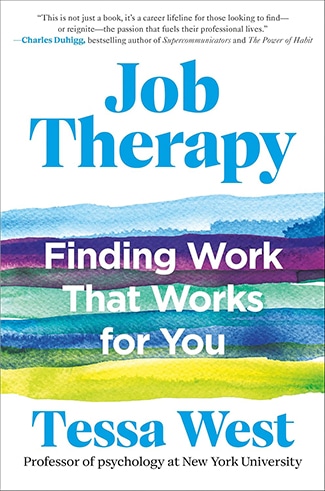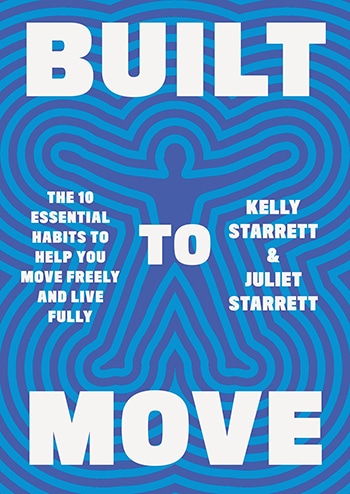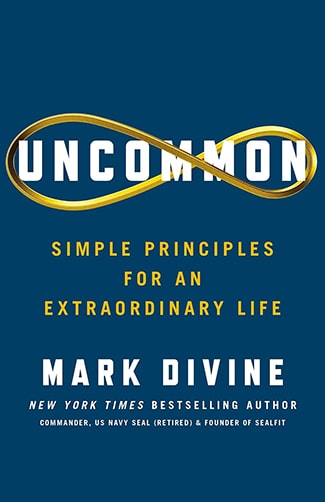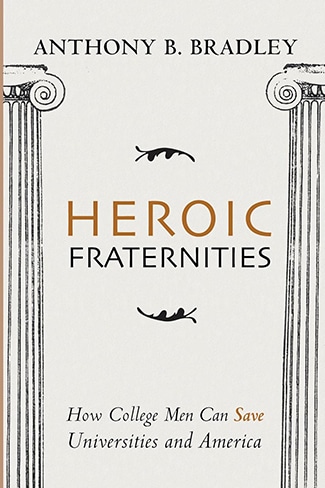Podcast Summary
Discover the Mind-Body Connection: How Our Expectations Shape Our Reality: Our expectations have a profound influence on our experiences and physiology, including the ability to reduce pain, improve health, enhance performance, and influence aging.
Our expectations and mindset have a profound impact on our experiences and physiology. Henry Beecher's field expedient placebo treatments during World War II shed light on the power of our expectations in reducing pain and discomfort. This led to decades of research into the mind-body connection and the placebo effect. Even when someone's pain or condition is real, the placebo effect can still produce real physiological changes. On the other hand, the nocebo effect demonstrates that negative expectations can actually manifest negative side effects. Our minds operate as prediction machines, shaping our reality based on our expectations. This understanding extends beyond the medical world and affects various areas of our lives, including sleep, diet, and fitness. By harnessing the power of our expectations, we can enhance performance, improve health, and influence how we age physically and mentally.
Discover how your brain creates your own version of reality!: Our brain uses predictions to process the world and prioritize important information, shaping our perception of reality based on context and previous experiences.
Our brain operates as a prediction machine, constantly forming simulations of the world around us to make sense of sensory data. These simulations are based on the context of our surroundings and previous experiences. By tidying up and processing sensory data, the brain constructs a version of reality that is shaped by its predictions. This prediction machine also influences our physiological responses and prepares us for action. Factors such as emotions, social interactions, culture, and information from doctors all contribute to the calibration of these simulations. While there may be some error in the brain's predictions, it is still the most efficient way for our brain to process the world and focus on the most important information.
Discover the Power of Brain Predictions and Boost Your Well-being!: Our brains are prediction machines that help us navigate the world and our beliefs and expectations can have a tangible impact on our bodies, influencing our overall well-being.
Our brains are prediction machines that help us navigate the world and deal with ambiguity. By relying on our past experiences and making predictions about what will happen next, our brains help us adapt and be more flexible. Even if our predictions turn out to be incorrect, there can still be benefits to being cautious. This is demonstrated through the placebo effect, where a fake treatment can actually have objective outcomes on our physiology. The placebo effect can result in physiological changes such as increased levels of natural painkillers and reductions in inflammation. It shows that our beliefs and expectations can have a tangible impact on our bodies. So, being open to the power of our brain's predictions can actually be beneficial for our overall well-being.
You won't believe how even fake treatments can heal you!: The placebo effect can provide significant benefits in various medical conditions, showcasing the mind's influence on our well-being.
The placebo effect can still have profound results even when people know they are taking a fake treatment. This concept of open-label placebos has been studied and shown to be effective in various medical situations, such as chronic pain, inflammatory bowel syndrome, fatigue, and allergies. The ritual of receiving treatments and the feeling of being taken care of can trigger physiological benefits, including reducing inflammation. Conditioning, where previous treatments have conditioned the brain to produce its own painkillers, also plays a role in the placebo effect. The more invasive the placebo intervention, such as injections or sham surgeries, the stronger the placebo effect tends to be. This highlights the power of the mind in influencing our well-being.
The Surprising Power of Placebos: Why They're Getting Stronger: The placebo effect is becoming more potent, posing challenges for drug approval. Open-label placebos, despite being known as inert, can still produce positive outcomes and are being considered for addressing opioid addiction.
The placebo effect plays a significant role in various medical treatments, including surgical procedures and drug trials. It has been observed that the placebo effect is getting stronger over time, making it more challenging for drugs to get approved by regulatory authorities. One possible explanation for this phenomenon is the increasing knowledge of the mind-body connection and the media coverage surrounding the placebo effect. Interestingly, studies have shown that open-label placebos, where patients are aware that they are taking placebos, can still yield positive results. While prescribing placebos raises ethical concerns, some doctors have admitted to using them in their practice. Furthermore, there is growing excitement around using open-label placebos to address issues like opioid addiction.
Discover the shocking truth about the power of your mind!: Our expectations and beliefs can affect our pain levels, so managing our thoughts and reducing anxiety can help alleviate chronic pain and improve overall well-being.
Our expectations and beliefs can have a significant impact on our pain and physical experiences. The placebo effect, where patients experience pain relief from a fake treatment, and the nocebo effect, where negative expectations create real symptoms, demonstrate the power of our minds in influencing our physiological responses. This means that the warnings and suggestions we receive about medications or conditions can actually shape our reality, resulting in either positive or negative outcomes. Understanding the potential of the nocebo effect can help individuals with chronic pain by recognizing and challenging catastrophic thoughts that amplify their pain. By managing their expectations and reducing anxiety, individuals may be able to alleviate some of their pain and improve their overall well-being.
Discover how your thoughts can worsen pain and insomnia!: Our thoughts and beliefs have a significant impact on physical symptoms. Adopting a positive mindset and managing negative thought patterns can help alleviate pain and improve sleep.
Our thoughts and beliefs can have a significant impact on our physical symptoms, including pain and insomnia. The nocebo effect, which is the negative counterpart of the placebo effect, can amplify our perception of pain and worsen symptoms. Conversely, adopting a more objective and positive mindset can help manage and alleviate symptoms. Cognitive behavioral therapy, similar to what is used for depression and anxiety, can be effective in addressing these negative thought patterns. Additionally, our expectations about sleep can influence how we feel the next day. Those who expect to suffer from sleep loss are more likely to experience negative effects, while those with a positive attitude can mitigate the effects of disturbed sleep. Ultimately, understanding the power of our thoughts and expectations can help us better manage our health and well-being.
Are Health Trackers and Genetic Tests Harming Our Well-being?: Health and fitness tracking devices and genetic tests can provide valuable information but may also lead to false expectations and anxiety. It's important to recognize their limitations and not let them dictate our perception and motivation for exercise.
Health and fitness tracking devices may have unintended consequences on our well-being. While these devices can provide valuable information about our sleep quality and physical performance, they are not always accurate and may lead to obsessive anxiety or a nocebo effect. Inaccurate readings or false feedback from genetic tests can influence our expectations and ultimately impact our actual performance. For example, participants in a study who were falsely informed about their genetic potential for endurance exercise showed significant differences in their treadmill performance, highlighting the power of expectations. In the case of fitness trackers and genetic tests, it's crucial to recognize their limitations and not allow them to dictate our perception and motivation for exercise.
You won't believe how reframing your daily chores can improve health!: By changing our perception of everyday tasks and meals, we can enhance physical fitness, nutrient absorption, and hormonal response, leading to better exercise and diet outcomes.
Our expectations have a significant impact on our exercise and diet. The study showed that when hotel cleaners were informed about the physical activity they were doing through their work, despite not perceiving it as exercise, they experienced improvements in their overall health. This suggests that reframing our daily chores as exercise and acknowledging their benefits can lead to better physical fitness. Similarly, research showed that having a positive attitude towards meals and perceiving them as nutritious can increase nutrient absorption. Furthermore, expectations can influence the hormonal response to food, with labeling and perceptions affecting the hunger hormone ghrelin. Therefore, being aware of and adjusting our expectations can have a profound effect on both exercise and diet outcomes.
10 Words: 32 Words
The way we describe food can have a significant impact on our appetite and how our bodies respond to it. Research shows that using more enticing and descriptive language when discussing food can increase satisfaction and anticipation, leading to a more positive physiological response. Additionally, the expectation effect can also be applied to anxiety and stress. By recognizing the potential benefits of uncomfortable feelings, such as a racing heart or heightened cortisol levels, individuals can improve their performance and prevent panic. This reframing of emotions can also expedite recovery from stress, allowing the body to resume essential functions like digestion and tissue repair more quickly. Therefore, setting realistic expectations and embracing the adaptive nature of stress can positively influence both our eating habits and mental well-being.
Discover the surprising ways stress and aging can benefit you!: Changing our mindset on stress and aging can lead to improved well-being, reduced long-term effects of anxiety, increased lifespan, and enhanced performance and personal growth.
Reframing our perceptions of stress and aging can have significant positive impacts on our well-being. By viewing stress as a natural response preparing us to face challenges, we can reduce the long-term effects of anxiety and stress, such as burnout and cardiovascular disease. Similarly, by fostering positive expectations about aging and avoiding negative associations, we can actually extend our lifespan. This mindset shift not only applies to ourselves but can also be taught to others, such as our children or those we coach. Changing our mindset allows us to harness the energy and discomfort of stress, turning it to our advantage and ultimately enhancing our performance and personal growth.
This Surprising Attitude Towards Aging Could Be Hurting You!: Cultivating a positive outlook on aging is crucial for maintaining physical and mental well-being, as it can help us make healthier choices and reduce stress, ultimately leading to a longer, more fulfilling life.
Our attitude towards aging has a significant impact on our physical and mental well-being. If we have a defeatist mindset and view aging as something terrible, we are less likely to take care of our health through exercise and a healthy diet. This leads to a higher risk of diseases and shorter longevity. Additionally, feeling vulnerable and seeing challenges as threats triggers a heightened stress response, which can accelerate the aging process at a cellular level. On the other hand, having a positive view of aging acknowledges the risks but also recognizes the benefits, such as personal growth, wisdom, and improved decision-making skills. Our perception of aging can shape our physical and mental experiences, making it important to cultivate a positive outlook to maintain vitality and functionality as we age.
Discover how our expectations shape our bodies and minds!: Our expectations can become a self-fulfilling prophecy, so it's important to recognize their influence and actively shape them to lead fulfilling lives.
Our expectations can greatly impact our physiology, psychology, and overall experience of life. In the past, people expected to be old and frail at 65, and that's exactly what they experienced. However, in modern times, we expect to remain vibrant and active for longer, resulting in 70-year-old grandmas wearing tank tops and doing Tae Bo. This highlights the powerful effect expectations can have on our bodies and minds. What we expect can become a self-fulfilling prophecy. It's important to recognize the influence our expectations have on our lives and actively shape them to better align with the outcomes we desire. By challenging limiting beliefs and cultivating positive expectations, we can lead more fulfilling and vibrant lives.












